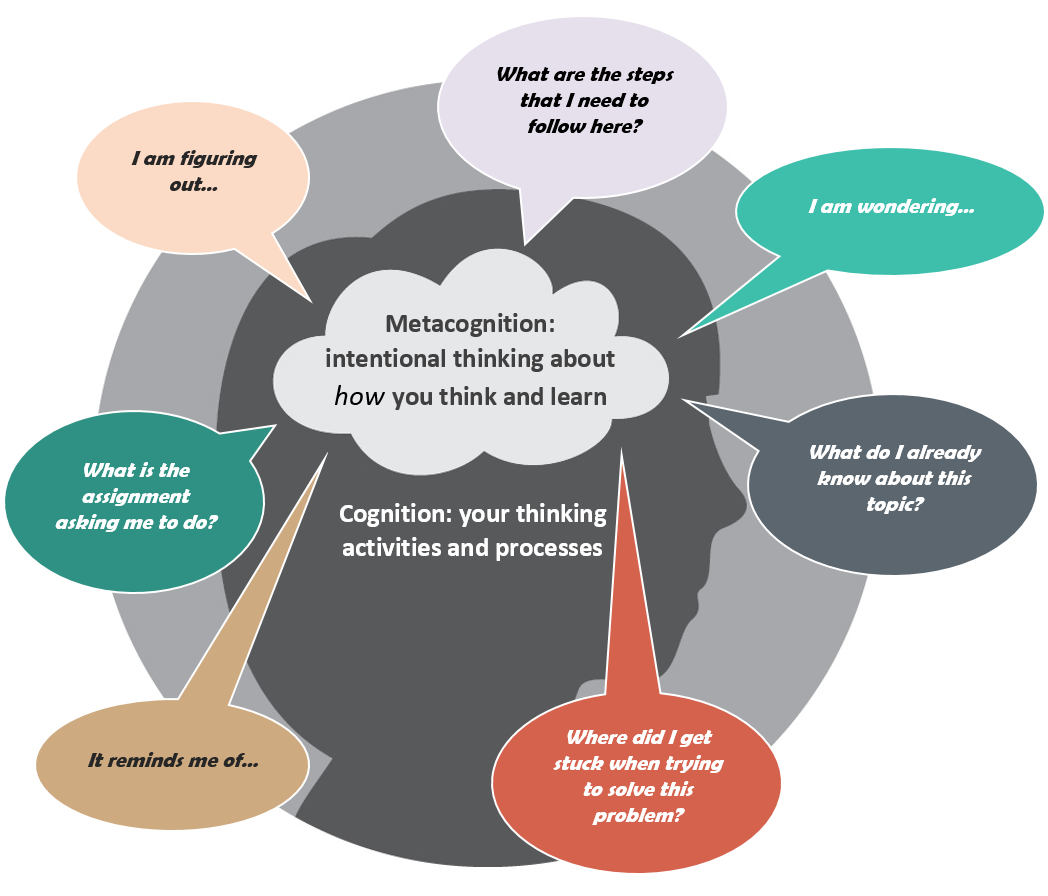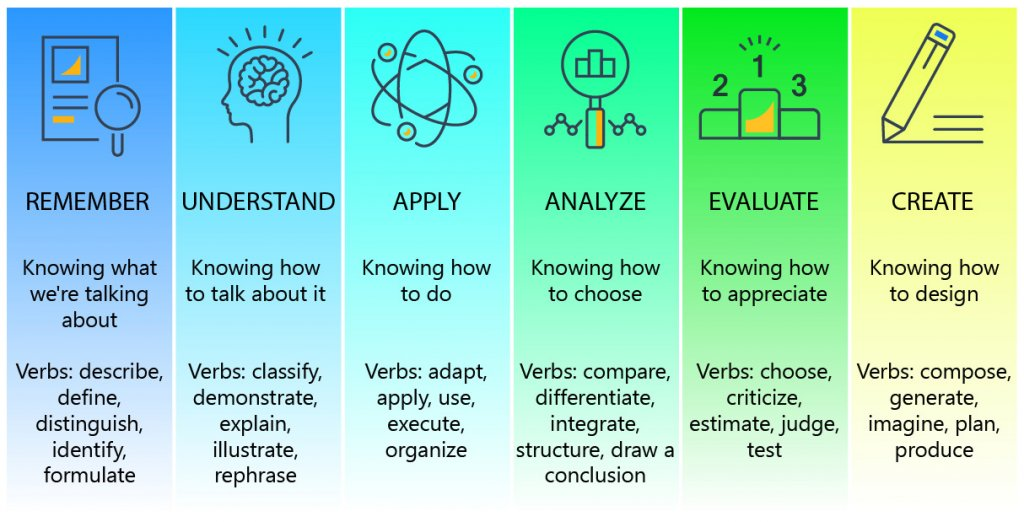
Moonpreneur
Is it often difficult to understand your anxieties during adverse situations?
Do you often struggle to stay on task?
Do you think you’re “bad” at mathematics?
Metacognition can provide you with the answers to most of the questions that often go unanswered.
Metacognition is the process of thinking about one’s thinking and learning, according to an article at Queen’s University. It focuses on self-monitoring and correcting one’s learning processes.
First coined in the 1970s by John Flavell, Metacognition is simply “thinking about thinking” – something that we unconsciously do daily but aren’t really aware of it. However, being self-aware and taking full accountability for your actions, reactions, and outcomes is something you can achieve only by consciously understanding your thoughts and learnings.
To understand the concept better, let’s do a small exercise.
Do you “hate” maths?
Next time when you find yourself feeling discouraged or disinterested in math, pause and reflect to understand when exactly you started to feel that way.
👉Was it a particular topic or concept you found confusing or challenging?
👉Maybe you didn’t like the math teacher?
👉Or did scoring low grades make you feel bad enough to think that math is not your cup of tea?
By reflecting on these questions, you can become more aware of your thinking processes and the factors influencing your feelings about math.

Source: Queens University
Types of Metacognition
Metacognitive Knowledge
Metacognitive knowledge refers to an individual’s knowledge about their own thinking processes. It includes knowledge of one’s strengths and weaknesses, knowledge of different learning strategies, and knowledge of when and how to use those strategies.
Metacognitive Regulation
Metacognitive regulation refers to an individual’s ability to monitor and control their thinking processes. This includes planning, monitoring, and evaluating learning and problem-solving processes. Metacognitive regulation also involves adjusting one’s thinking strategies when not working effectively.
Strategies for Developing Metacognitive Skills
Set goals
To become better learners, it’s important to set clear goals for your learning tasks. Make sure your goals are specific and measurable so that you can track your progress. Prioritize your goals by identifying which ones are most important or urgent, and focus on those first.
Don’t forget to celebrate your successes along the way!
By setting achievable goals and working towards them, you’ll learn about your thinking processes and become a more effective learner.
Self-monitoring
Completing a task requires self-monitoring at various levels. Ask yourself questions like “Do I understand the concepts?” or “Do I need to read that paragraph again?”
Being honest with yourself and your progress is important to achieve the ultimate goals. Understanding your learning potential better and adjusting the approach accordingly will help you become an expert in the subject you aim to ace. And during the process, remember, it’s okay to make mistakes and struggle with new concepts. With time and effort, you’ll become a more confident and effective learner.
Reflection
Most people take a sigh of relief after completing tasks. But the Meta-cognitive approach teaches you to reflect on your work once you’ve achieved your goal. Take some time to think about what you did well and what you could improve upon. This will help you identify areas where you can grow.
Don’t be afraid to ask yourself tough questions, like “What could I have done differently to get a better result?” or “What did I struggle with, and how can I improve next time?”
With reflection, you’ll also learn to treat failures as opportunities to learn and grow. This eventually frees you from the fear of failure and ensures success in the long run.
Use different strategies
Not all kids are made the same. Some might enjoy an open-ended learning approach, while others might need to start with a “non-blaming” strategy to get past their pre-conditioning. Try out different Metacognitive strategies for learning, evaluate the outcomes, and determine which one works best for you.
Some of the most common strategies are:
Open-ended approach: Instead of looking for a single “right” answer, try to explore different perspectives and possibilities to identify the right direction for your goals.
Non-blaming approach: When things don’t go as planned, avoid blaming yourself or others. Instead, focus on developing a growth mindset and moving forward.
Solution-focused approach: Rather than dwelling on problems focus on identifying solutions. This can help you develop problem-solving skills and feel more in control of your learning.
Process-oriented approach: Focusing solely on the outcome of a task is the worst strategy. Instead, pay attention to the steps you took to get there. This can help you identify what worked well and what didn’t and develop a deeper understanding of your learning processes.
Skills Associated with Metacognition

Source: Knowledge One
Are you born with metacognitive skills, or can they be acquired? The good news is that anyone can develop metacognitive skills with practice.
To begin with, Metacognitive skills are important for lifelong learning and can help you succeed in academic, personal, and professional life.
Here are some of the key metacognitive skills you need to practice:
Self-awareness: You should be able to recognize your strengths and weaknesses.
Prioritization: You must be able to set goals, plan strategies, and organize information. Prioritize your tasks effectively to achieve more in less time.
Monitoring: This skill requires you to monitor your thinking processes and adjust your strategies when necessary.
Evaluation: Evaluation as a skill requires developing problem-solving ability based on performance.
Self-reflection: Reflection is key to all Metacognitive exercises. Without reflection, you may not be able to identify areas for improvement that can hinder growth and development.
Become a Better Learner Now…
Isn’t that the goal of practicing metacognitive paradox? You can become a better learner by understanding your thought processes, evaluating them, and reflecting on them occasionally.
These small yet significant actions, when done regularly, can make a great deal of difference in your life. Of course, parents and educators can help you master the process – but eventually, it’s you whose dedication and determination will be paramount in incurring success – both personal and academic life.
Moonpreneur understands the needs and demands this rapidly changing technological world is bringing with it for our kids. Thus we are on a mission to educate and ignite the flames of entrepreneurship through our holistically created online STEM programs, which will help kids master the futuristic sciences such as Robotics, Game Development, App Development, Advanced Math, and much more!!
Register for a free 60-minute Robotics Workshop today!


















Does metacognition improve with age?
Metacognition tends to improve with age due to accumulated experiences, formal education, ongoing brain development, social interaction, and increased self-awareness. While not solely dependent on age, older individuals often exhibit enhanced abilities to reflect on and regulate their own thinking processes compared to younger counterparts